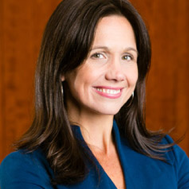Preliminary analysis using the CFPB National Financial Well-Being Survey suggests that automaticity, or a personal savings habit, offers greater protection than pure automation of savings. Yet, practice has emphasized a broad array of automated savings devices such as “round up” automatic transfers. The belief underlying automation efforts is that building savings is the most important factor in reducing financial hardship and improving financial well-being. While these automation tools are intended to help, our preliminary evidence shows that having an automated savings account does not reduce your financial vulnerability to the same extent as having a savings habit. Though enrollment in automated programs may improve savings account balances; this may only be true for individuals with a preference for commitment. It may be that automation is helping to implement an existing savings habit. Automaticity is the acquisition of a consistent internal response to stimuli after a period of repeated conscious choice. Possibly, automated savings programs do not help build a savings habit if it eliminates the need for a repeated conscious choice.
Track Leaders


Nancy Wong holds the Kohl’s Chair in Retail Innovations and is Professor of Consumer Science, University of Wisconsin-Madison. She holds an affiliated appointment at the Marketing Department, School of Business. She received her Ph.D. in Business Administration from the University of Michigan. Her research has focused on the influence of culture in consumption decisions, affective responses, and consumption values such as materialism. She also conducts research on consumer decisions in healthcare, personal finance and sustainable consumption. Her research has been published in Journal of Consumer Research, Journal of Consumer Psychology, International Journal of Research in Marketing, Psychological Methods, Cognition and Emotion.

Genevieve O'Connor is an assistant professor of marketing at the Gabelli School of Business, Fordham University. She earned her Ph.D. from Rutgers University. Professor O'Connor's publications have appeared in top tier journals including Journal of Public Policy & Management and Journal of Consumer Affairs. Dr. O’Connor is a services marketing strategist who specializes in consumer well-being with a focus on healthcare and financial well-being. Drawing on more than a decade of industry experience with Fortune 500 companies, including 3M, U.S. Surgical and Boston Scientific, Dr. O’Connor conducts research and provides expert consultation for healthcare organizations.
